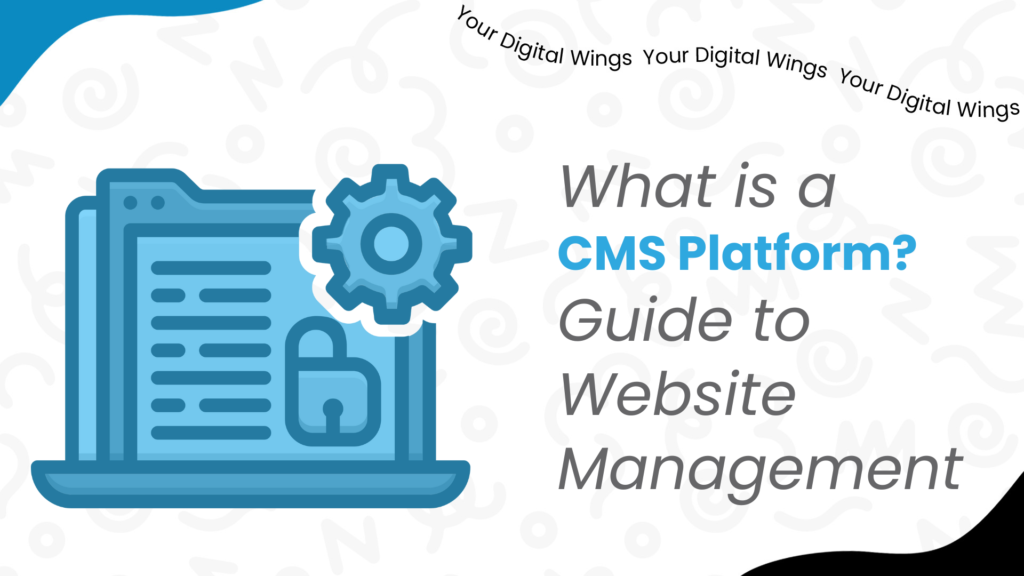In the ever-evolving digital world, choosing the right Content Management System (CMS) is crucial for businesses, bloggers, and website developers. A CMS is a software application that allows users to create, manage, and modify digital content on a website without needing to code from scratch. The choice between an open-source CMS and a proprietary CMS can significantly impact the development, customization, and maintenance of your website. This blog dives into the differences between open-source and proprietary CMS platforms, with a focus on WordPress development services in Dubai and its open-source advantages.
Introduction to CMS Platforms
Before we get into the specifics of open-source and proprietary CMS options, let’s start with a fundamental question: What is a CMS platform? A CMS is a tool that facilitates the creation, editing, and management of content on a website. It’s a go-to solution for those who want to publish content without requiring deep technical knowledge. There are two primary types of CMS platforms: open-source and proprietary.
Open-source CMS platforms, such as WordPress, Drupal, and Joomla, allow users to access the source code and modify it freely. In contrast, proprietary CMS platforms like Shopify and Squarespace are owned by companies that control access to the source code and charge users for their services.
The CMS you choose should align with your goals, resources, and the level of control you require over your website. Let’s compare both types of CMS platforms, focusing on their strengths and weaknesses.
Open-Source CMS Platforms (e.g., WordPress, Drupal)
Open-source CMS platforms are free to use, and users can modify the underlying code to meet their specific needs. WordPress, the most popular CMS globally, is a prime example of open-source software. With millions of users worldwide, WordPress offers unmatched flexibility and customization options, which are some of its standout features.
Advantages of WordPress Open-Source
One of the biggest advantages of WordPress open-source is its versatility. Users can create everything from blogs to complex e-commerce sites using the platform. Its open-source nature allows developers to dive into the code and make customizations or even build plugins to enhance the site’s functionality. Furthermore, open-source CMS platforms are community-driven, meaning that developers around the world contribute to regular updates, new features, and security patches.
For businesses looking to have complete control over their website without high costs, open-source platforms are ideal. You don’t need to worry about monthly subscription fees or limitations in terms of customization. A WordPress development company Dubai can help you harness the full potential of WordPress for your specific needs.
WordPress vs Drupal Comparison
If you are considering other open-source CMS options, you might also come across Drupal. WordPress vs Drupal comparison often boils down to personal preference, project needs, and technical skills. While WordPress is user-friendly and great for beginners, Drupal tends to be favored by more experienced developers because it offers greater flexibility and scalability. However, this comes at the cost of a steeper learning curve. For most users, WordPress remains the go-to choice for creating a wide variety of websites.
Proprietary CMS Platforms (e.g., Shopify, Squarespace)
Proprietary CMS platforms are owned and managed by a single company that offers its software as a service (SaaS). Unlike open-source CMS, proprietary platforms do not allow users to modify the underlying code. Instead, users are offered pre-built templates and tools that simplify website creation.
Advantages of Proprietary CMS
Proprietary CMS platforms are known for their ease of use. Services like Shopify and Squarespace provide user-friendly interfaces, making them excellent choices for people without technical expertise. They come with built-in hosting, security features, and customer support, so users don’t need to worry about managing these aspects themselves.
For e-commerce websites, Shopify is one of the leading choices. It offers a range of features tailored to online stores, including payment processing, inventory management, and more. Similarly, Squarespace is ideal for portfolio sites, blogs, and small businesses, providing visually stunning templates and an intuitive drag-and-drop interface.
WordPress vs Proprietary CMS
While proprietary CMS platforms like Shopify and Squarespace offer simplicity and convenience, they can lack the flexibility of open-source CMS solutions. WordPress vs proprietary CMS comparisons often highlight the control and customization that WordPress offers, which proprietary platforms typically don’t.
For example, WordPress allows you to build a completely unique website by using custom themes or coding the site from the ground up. On the other hand, proprietary CMS platforms often have limitations in terms of design and functionality. If you’re building a highly specific website that requires advanced customization, an open-source CMS like WordPress is likely the better choice.
WordPress as a Dominant Open-Source CMS
WordPress remains the dominant force in the CMS landscape, with over 40% of websites powered by the platform. Its user-friendliness, customization options, and extensive ecosystem of plugins and themes have made it a top choice for businesses and individuals worldwide.
Best CMS for Websites
When considering the best CMS for websites, WordPress stands out for a number of reasons. Its vast selection of themes and plugins allows users to create virtually any type of site, from blogs to business websites to online stores. Furthermore, WordPress is SEO-friendly, with tools like Yoast SEO helping users optimize their websites for search engines.
Another key reason why WordPress is often considered the best CMS for websites is its scalability. Whether you’re a small blog or a large e-commerce store, WordPress can handle websites of any size. For businesses, this means that WordPress can grow with you, providing the necessary tools and flexibility to evolve as your needs change.
Pros and Cons of CMS Platforms
Pros of Open-Source CMS Platforms:
- Cost-Effective: Open-source CMS platforms like WordPress are free to use, which makes them an affordable option for businesses.
- Customizable: With open-source software, you have complete control over your website’s design and functionality.
- Community Support: Open-source platforms have active communities that contribute to the platform’s growth, offering support and development resources.
Cons of Open-Source CMS Platforms:
- Technical Expertise Required: While platforms like WordPress are user-friendly, getting the most out of them may require some technical knowledge.
- Security Risks: Open-source platforms are more vulnerable to security breaches if not maintained correctly.
Pros of Proprietary CMS Platforms:
- Ease of Use: Proprietary CMS platforms are designed to be user-friendly, making them ideal for beginners.
- All-Inclusive: Most proprietary CMS options offer built-in hosting, security, and customer support.
Cons of Proprietary CMS Platforms:
- Limited Customization: You’re restricted to the features and designs that the proprietary CMS offers.
- Subscription Costs: Most proprietary platforms require ongoing subscription fees.
Final Thoughts: Choosing the Right CMS
When deciding between open-source and proprietary CMS platforms, it’s essential to consider your specific needs, resources, and future goals. Open-source CMS platforms comparison shows that while WordPress offers flexibility, customization, and control, proprietary CMS platforms excel in ease of use and built-in support.
If you prioritize the best CMS for customization and long-term scalability, WordPress may be your best bet. However, if you want a hassle-free solution with minimal setup, a proprietary CMS like Shopify or Squarespace might be a better fit. Ultimately, the right choice depends on your objectives, whether you’re building a simple blog or a complex e-commerce site.
For more insights into CMS platforms and how they compare, check out our detailed WordPress vs proprietary CMS comparison or explore our guide on the best CMS for websites. By understanding the strengths and weaknesses of each platform, you can make an informed decision that supports your website’s growth and success.

 United Arab Emirates
United Arab Emirates